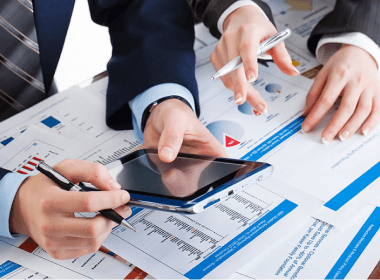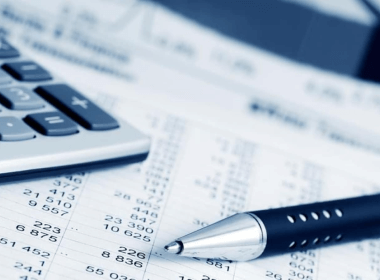Thinking About a Future Transition
At a certain point in time, a successful business owner stops thinking about all the day-to-day operations and the strategic planning for the company’s execution in the marketplace, and starts to think about the future ownership and who will own and run their business after them. This process is often referred to as ‘exit planning’ and will often begin with the personal desires of that owner, including their personal goals as well as what they would like to see happen with the business. When considering your personal goals, it is helpful to identify whether your business is an accumulation asset or a consumption asset. This newsletter will provide details around this distinction and assist you, the business owner, in thinking through how your business asset may be transitioned to someone else in the future while helping you achieve your goals.
Consumption versus Accumulation Assets
There is a difference between an asset that serves the purpose of consumption and one that serves the purpose of accumulation. And, this is an extremely important distinction to make when you begin to think about who will own your business next.
Let’s take a look at both types to help you see where you and your business best fit.
A consumption asset is an asset that produces income that you need to sustain your lifestyle. You have expenses that need to be met in your personal life and you are ‘consuming’ the income that flows from these types of assets. For example, if you own investment real estate, you are likely generating rental income on a monthly basis. For some real estate owners the rental dollars are being received and used to sustain their lifestyle. This is one example of a consumption asset. It is an asset that is sustaining your lifestyle and if you disposed of the asset, you would lose the income stream that is supporting you. Consumption assets are those, like the real estate example, that sustain your lifestyle.
An accumulation asset is the opposite of a consumption asset. Accumulation assets are those that are ‘set aside’ by a business owner, that are expected to accumulate over time and the income and / or growth in value of that asset is not being tapped to sustain one’s lifestyle. One of the best examples of an accumulation asset is a 401(k) plan, or other retirement plan. The contributions to these types of planning vehicles are intended to be left alone until a point in time in the future – presumably when you are ready to retire and turn that accumulation asset into a consumption asset. Accumulation assets are not used to support current lifestyles but are set aside to grow in value and / or to have income reinvested for further accumulation.
So, Is Your Business a Consumption or Accumulation Asset?
Now that you know the difference between these two types of assets, the question becomes whether your business is a consumption asset for you and your family or whether it is an accumulation asset. Here are some examples to clarify the point:
Consumption-Asset Businesses
A business that is a consumption asset is one where the owner:
- Depends on the W-2 income to sustain their lifestyle.
- Takes profits from the business out each year for the owner’s lifestyle.
- Most often works daily in the business, running the day-to-day operations.
- Does not have other streams of income that are sufficient to meet their personal spending needs.
- Realizes that if the business income (and annual profits) were no longer available, that owner’s lifestyle would be seriously impacted
Accumulation-Asset Businesses
By contrast, an accumulation-asset business is one where the owner has achieved a certain level of financial independence from the business and the business profits are, at least in part, re-invested in the company with the thought that the company will grow and become more valuable.
Why is this Distinction Important to a Successful Exit?
For owners who have consumption-asset businesses, it can be difficult to think about an exit because so much of their livelihood and monthly living is tied to the success or failures of the company. When an owner has a business that is a consumption-asset, they are dependent upon that business for their livelihood. Therefore, the impact to many companies that fit this description is that the owner is very involved in the company and long-run planning and investment can often be substituted for short-term needs for cash for that owner’s lifestyle. While owners may be perfectly comfortable with this scenario, it does raise the related-issue of how and when this kind of owner will be able to harvest the value of that business via a transfer to a new owner.
For owners who have accumulation-asset businesses, the exit planning can be a bit easier. Because the owner is not financially dependent upon the company, it is easier to see and explain to someone else how excess cash inside of the business could be available to the new owner. Consumption-asset business owners do not see ‘excess cash’ as a business asset. They tend to see it as a bonus for their personal spending. By contrast the accumulation-asset owner is in a better position to view their business as an investment, and not as a job, and to explain to a future owner the benefits of owning their company.
Concluding Thoughts and How to Improve Your Situation
If you are an accumulation-asset business owner, you are well positioned to execute on an exit plan because you are financially less dependent upon the company for your lifestyle. However, if you are a consumption-asset business owner, then this newsletter is written to have you begin to think about the future consequences of being financially tied to your company. It is the intention of this newsletter to help owners see the difference between the two types of business assets and, for the consumption-asset business owners, to think about taking the time to make yourself less dependent upon the income and profits from the business so that you too can one day have an easier time with capturing the value that exists within your illiquid business.
BERI™ Report
Below is a link to a 10 minute, 20 question online assessment that can assist you in determining your financial and mental readiness for your exit. There is no fee to take the assessment and your answers are sent immediately to your e-mail and kept completely confidential.
Business Exit Readiness Index™ Owner’s report
As a business owner who may be thinking through the eventual exit from their business, this complimentary online assessment may be the ideal starting point. And, after receiving your Business Exit Readiness Index™ Owner’s report, you may want to take a follow up meeting to discuss your answers further and gain more clarity on how you will have a successful exit in the future.







